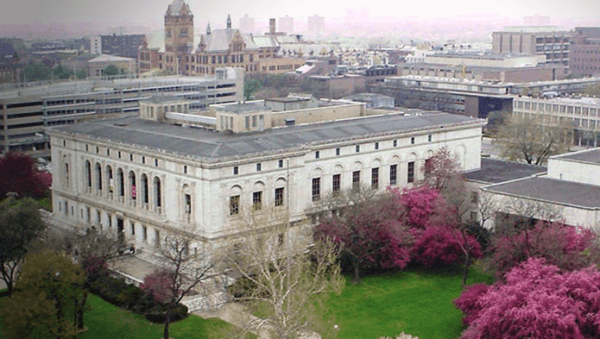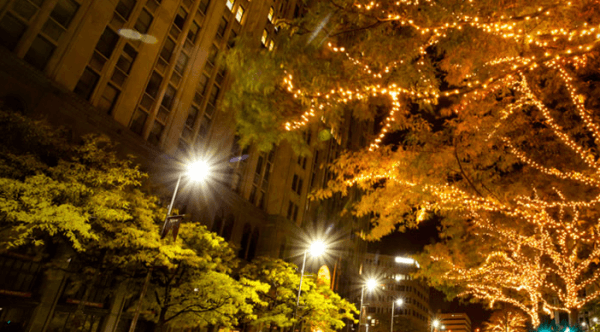Who’s bringing LED street lighting, walkable greenways and community gardens to Detroit? It’s not the city’s mayor or city council, but rather, a non-profit known as Midtown Detroit, Inc. Dedicated to the physical and economic revitalization of this Motor City neighorhood, the organization has been at the heart of Midtown’s revival.
Next American City reports that the Midtown neighborhood, located just north of Detroit’s downtown and riverfront area, has seen a remarkable revival in recent years. While independent enterprises the nation over have been struggling since 2008, entrepreneurs here have been taking over darkened storefronts to launch new businesses and restaurants. In a city that has lost nearly half of its population since the boom years of the 1950s, Midtown has managed to keep 95 percent of its housing occupied, and to create vibrant community gardens in what once were vacant lots. In fact, almost no Midtown businesses were lost during the recession, despite the fact that the city didn’t exactly enter the economic slump on the most solid of footing.

This highly influential community development corporation (CDC) — founded in 1976 by community activists allied withthe affordable housing movement of the 1960s — has succeeded largely due to its tactical collaborations with major anchor institutions in Detroit. These collaborations include not just City Hall, but key local anchor institutions such as the Detroit Institute of Arts, Wayne State University and the Detroit Medical Center. By bringing diverse players with mutual interests to the table, Midtown Detroit has been able to accomplish diverse community objectives — for instance, keeping local housing occupied by offering financial incentives to employees of anchor institutions to buy or rent homes in the neighborhood, through the Live Midtown initiative.
A recent testament to the success of Midtown’s revival is the fact that Whole Foods has begun construction on a 21,000-square-foot store on a vacant corner in the neighborhood — the first time on record this decidedly bourgeois establishment has deigned to set up shop in a distressed urban center. A key player in that decision was Midtown Detroit’s President Sue Mosey. Mosey has been credited with convincing the company to commit to Detroit, and helped to put together the complex financial deal that lured the new store to Detroit. Sure, the store brings more fresh, organic produce to the city (which is already known for its local foods and farmers markets). But more than that, its the arrival sends a clear signal: Midtown is stable and thriving.

All of which has helped to earn Midtown Detroit a reputation for getting things done in a more effective and nimble manner than the city government itself. Could non-profit organizations such as this play a starring role in the revival of other distressed American cities? That, of course, remains to be seen — but in Detroit, the proof is in the high-end olives.